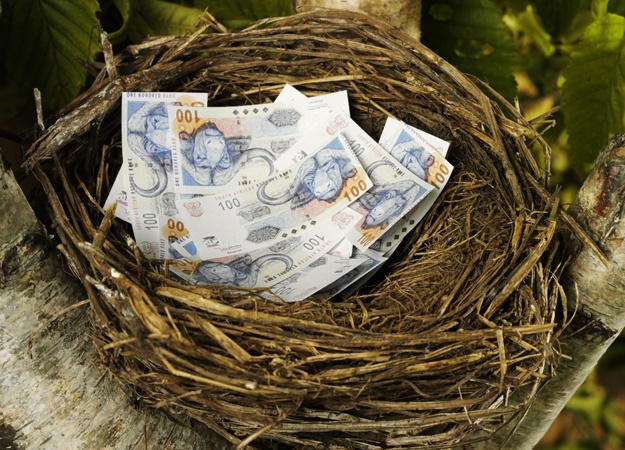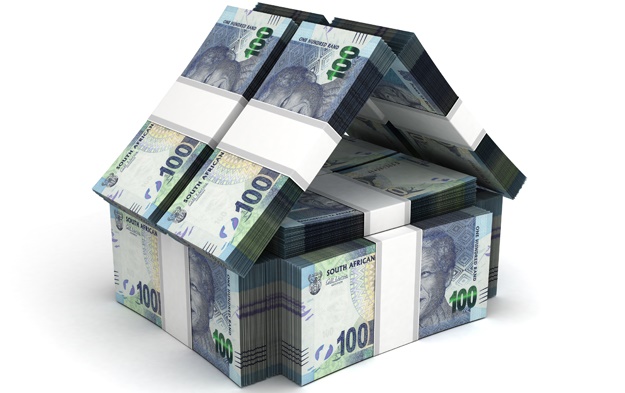Cape Town - Many people aren't lucky enough to get a bonus, 13th cheque or tax refund this time of the year. But if you are of the lucky few, it is always wise to be smart when spending your hard-earned cash.
WATCH: How people will spend their bonuses
What the experts say
Piet Nel from the South African Institute of Tax Professionals: If you can afford to, pay off debt or invest.
It would be prudent to use the bonus to pay off debt or to make an investment if it is not needed for normal living expenses. In my experience, most employees who still get a 13th cheque or annual bonus need that to pay for living costs such as their children's school fees, or expenses that they couldn't incur earlier as their monthly income was just not enough to meet those expenses earlier. Other people use that for their holiday, or treat themselves with the purchase of something special.
A tax refund is in a sense similar to a bonus, so the same principles would apply as to a normal bonus.
Mike Brown from etfsa: Ideally, you should save or invest it all, but if you can't, start by allocating portions of your bonus.
The ideal is for you to save or invest your entire bonus, but that's not realistic for many consumers. You thus need to divide your budget into three parts:
The first part is to spend over the holidays. Decide as a family what’s important, and what you want to spend it on. Be conscientious about spending and enjoying the extra money, and be smart. Shop with a keen eye to a bargain, as we’re likely to have lots of discounts and bargains this festive season.
The second (and third part) should be used to pay off debt - ideally, an entire debt, such as a store card, credit card or overdraft. After you’ve paid off this debt, you need to get rid of the account so you don’t run up the debt again.
Every month from next year, you have one less debt to pay and some extra money every month. This way, your bonus pays you every month until the next bonus.
If not used to cover debt, the third part of the bonus should be saved or invested. If you have no short-term savings, put it aside for an unexpected or emergency expense that may crop up. Keep it in a savings account. The interest won’t be a lot, but easy access to the money is critical.
If you have short-term savings, invest the money into a tax free account if you haven’t already hit your R30 000 limit.
Matthew Chapman from NFB: The luxury of a bonus itself presents an opportune time to tidy up your financial situation.
For those of us lucky enough to receive an annual bonus or 13th check, there often seems to be a desire to spend it all on an unnecessary luxury. What we should remember is that the luxury of the bonus itself presents an opportune time to tidy up your financial situation.
Firstly, a bonus should be used to pay off any short-term debt (credit cards, store accounts, etc.) which typically attracts much higher interest rates of up to 20% annually.
Next, take another look at your monthly budget and re-evaluate how affordable any long-term debt is and will be in the following year. For example, putting money into your bond is often a good idea to reduce the principal balance of the debt and thus your monthly repayments. Furthermore, this cash (provided the bond is structured as an access bond) is usually accessible at a later date should you so wish.
Then see what’s left and split this between a long-term investment vehicle (a tax-free savings account, top up retirement annuity) and last, but definitely not least, treat yourself. It’s been a crazy year and at the end of the day we all need some R&R - take a holiday, buy some gifts for those you love. Enjoy the holiday season and be safe.
David Chard, head Life & Invest, PSG Wealth: Using your bonus wisely now could mean that you have more savings at your disposal later in life.
With a comfortable nest egg later in life you could pursue the things you want, especially when using a tax-efficient product to amplify your returns.
Retirement annuities: A retirement annuity (RA) aims to grow your pre-retirement investment so you have a pool of savings available when you retire. If you have an existing RA, your annual bonus would be a welcome lump sum boost to your retirement savings. If you are not already saving for retirement, this could be the perfect opportunity to start.
All your investment growth in an RA is tax-free, proceeds up to a certain amount at retirement are tax-free and your investment contributions are tax deductible, up to a specified limit. You can make lump sum or debit order investments and must remain invested until age 55 (some exceptions apply).
Tax-free savings accounts: This flexible investment product is geared for growth and can be tailored to your individual needs and risk tolerance. Introduced by government in 2015, tax-free savings accounts (TFSAs) have changed the way many South Africans save – making it possible to build significant wealth over the long term by making relatively small contributions while avoiding having your returns diminished by tax.
You can invest up to R30 000 a year and up to R500 000 over the lifetime of your investment. You can withdraw funds at any time, but focusing on the long term will ensure maximum reward. A TFSA offers all the flexibility of a standard discretionary investment, without any of the tax implications.
Act in good time: You still have an opportunity to maximise your tax savings for the current tax year – but you need to act in good time. The cut-off date to finalise contributions to retirement annuities for the current tax year is February 28 2017. However, there are logistics that mean most product providers require monies to be received and applications "in good order" (i.e. complete, correct and with all supporting documents included) before this date. Check with your adviser when your applications are due.
Start making the most of your bonus: You will thank yourself for making smart decisions today. Investing your bonus sensibly now could be a lifesaver or a pleasant luxury further down the line. Then you can relax during the holiday season, knowing that your investment will already be earning returns by the time you get back to the office, energised and ready to take on the New Year.
Shaun Rademeyer, CEO of BetterLife Home Loans: Stop enriching lenders with high interest payments.
There are several great things you can do with a bonus that will help you feel wealthier all year round, and the most important of these is to reduce your debt, especially any debt that carries a high interest rate. For example, do a quick calculation and add up just the interest you paid on your credit card this past year. This is how much you could save in the coming year by eliminating the outstanding balance.
Other ways to use a bonus to improve your financial future include the following:
Use the “envelope strategy” to stick to your budget for festive season spending. Decide with your family what you are going to spend on gifts and entertainment, and allocate an exact amount, or “envelope”, for each occasion or person. You can also separate your festive season money from the rest of your money into a special electronic wallet or debit card account and leave your credit and store cards at home.
Save for January. You can stop January from being the longest, most miserable month of the year by putting aside some of your bonus to cover those extra costs we all tend to forget about in December. These might include school fees, uniforms and start-of-the-year items such as bags, shoes and stationery; medical aid and insurance premium increases; annual licence fees and subscription renewals as well as any additional bills or credit card charges you incurred over the festive season.
Open a savings account. If your budget is free of high-interest debt, use at least some of your bonus to open a “rainy day” account - and set up a debt order to add to it every month.
Advance your home ownership plan. If you are working towards buying your own home, boost your deposit savings with at least part of your bonus. The bigger deposit you can pay, the more likely you are to be approved for a home loan - and the smaller your monthly repayments will be.
If you are already a homeowner, a good option is to use your bonus - or at least part of it - to reduce the capital portion of your home loan. This could benefit you all year with a lower monthly instalment. Also, you can increase the value of your home by using some of your bonus to improve the exterior appearance, the security measures or the garden. At today’s prices this could translate into significant savings – and a quicker sale – when it is time to sell.
Do you have a successful savings story, send it to us.
Read Fin24's top stories trending on Twitter: Fin24’s top stories




 Publications
Publications
 Partners
Partners












